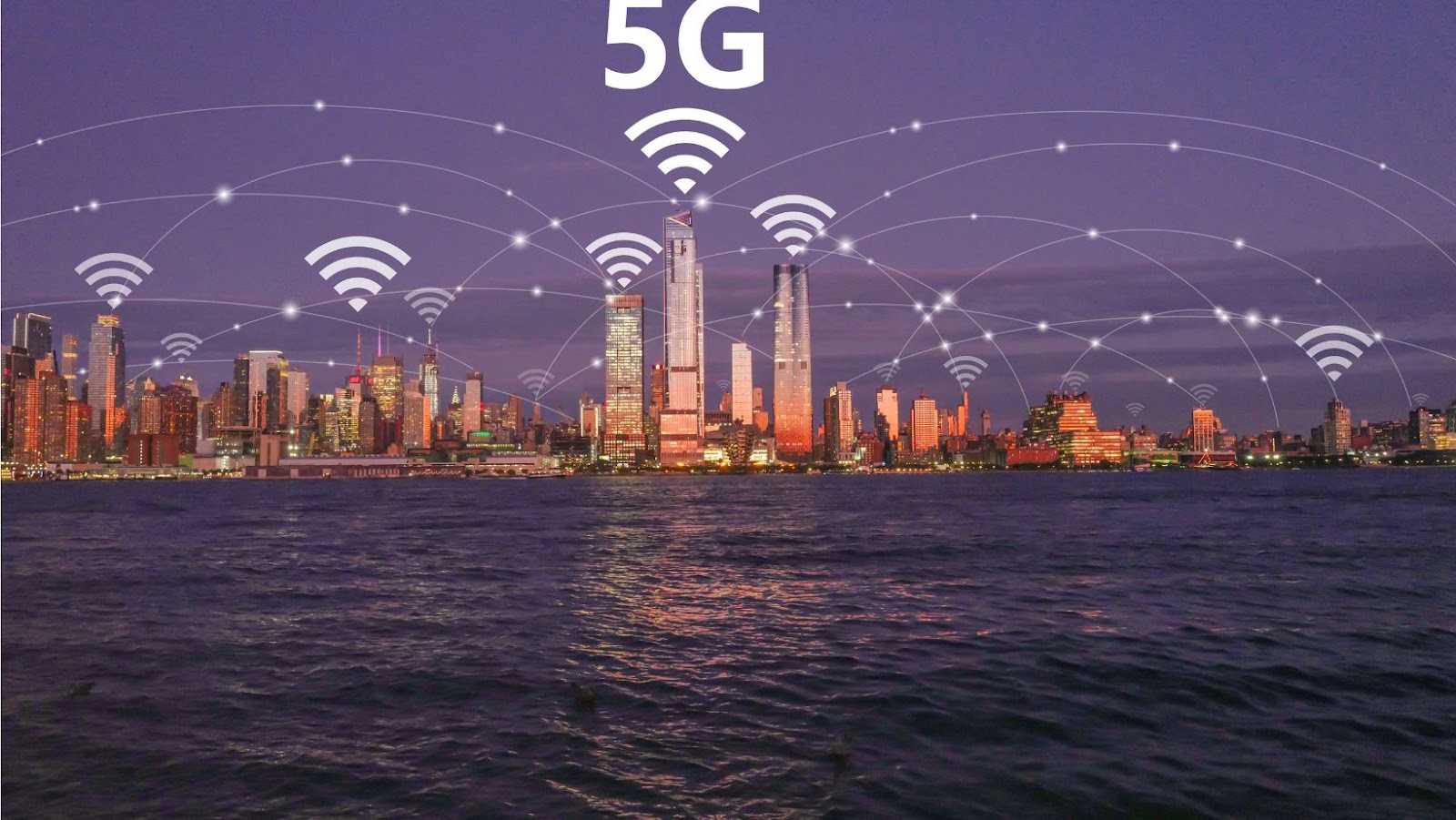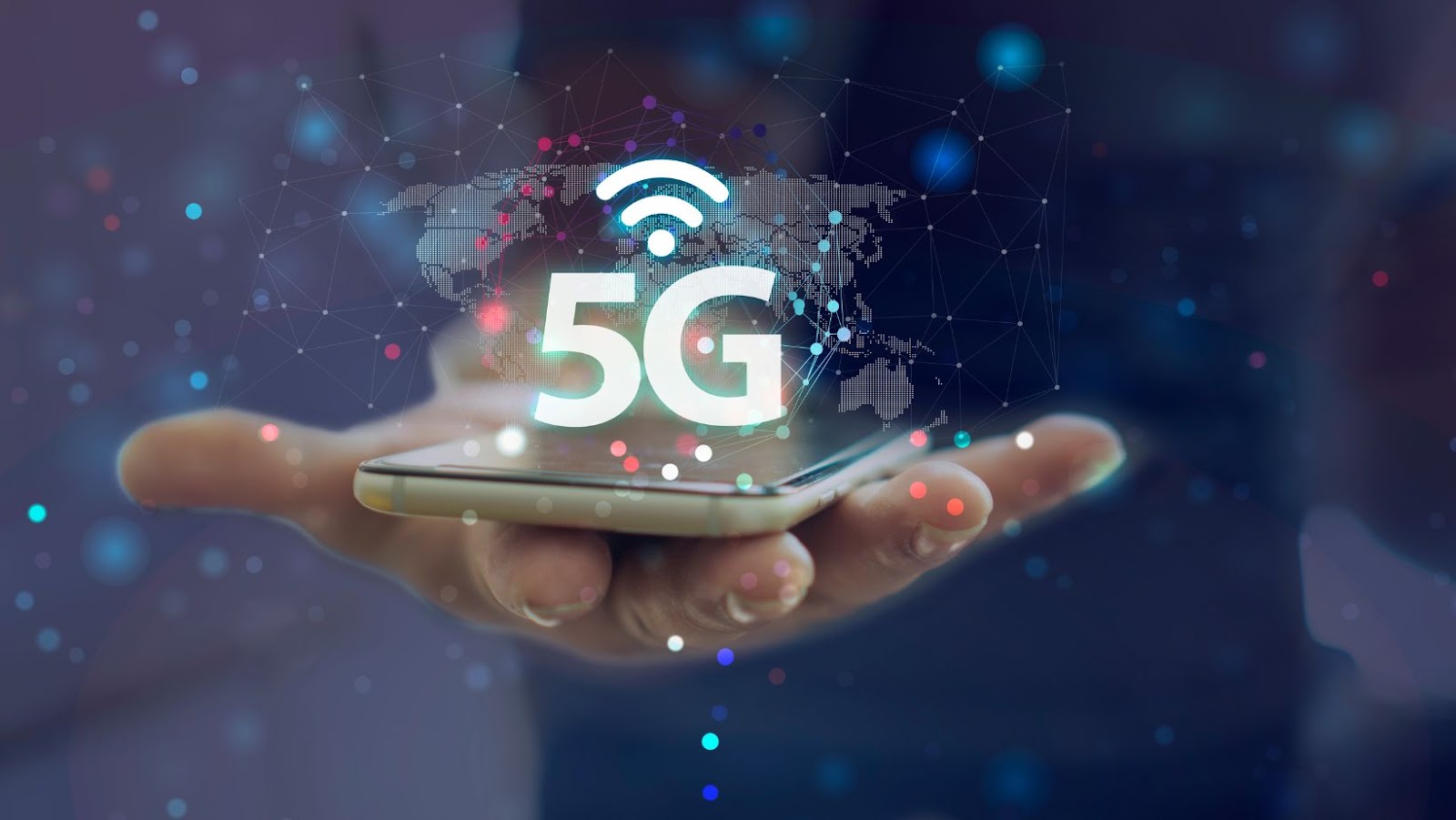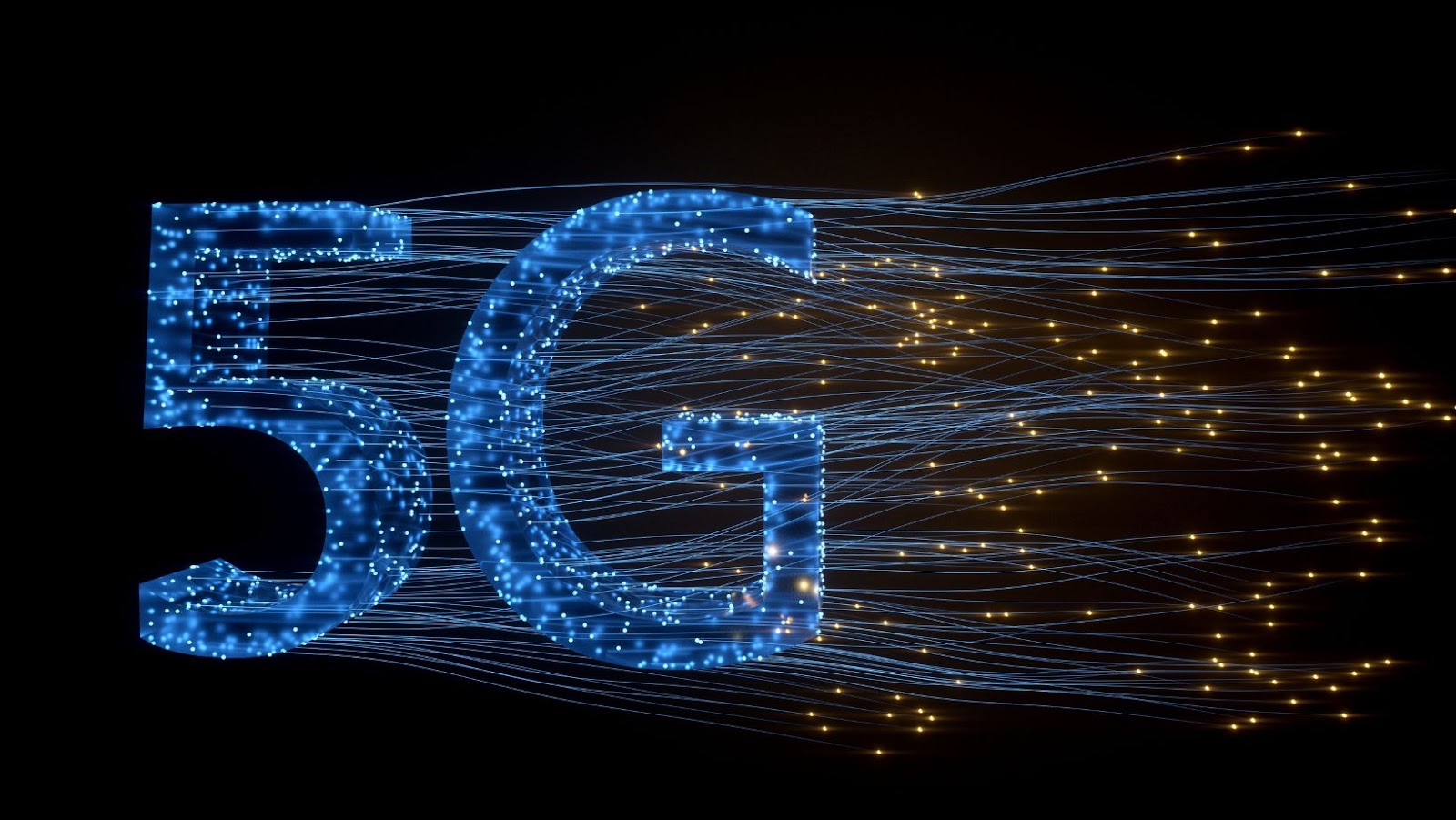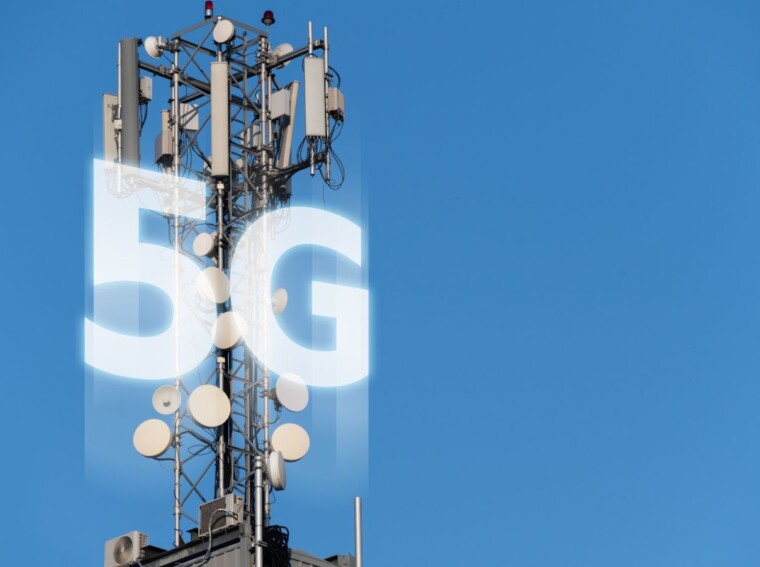5G technology is poised to revolutionize communication by enabling faster speeds and lower latency.
With 5G, users can expect:
- Faster download and upload speeds allow quicker access to large files, high-quality video streaming, and uninterrupted online gaming.
- Reduced latency, meaning faster response times, resulting in a smoother and more responsive experience when using internet-connected devices.
- Improved connectivity will lead to better coverage in areas previously underserved by wireless networks.
- More opportunities for Internet of Things (IoT) devices, as 5G can support more connected devices.
Additionally, 5G technology will significantly impact industries such as healthcare, transportation, and manufacturing, enabling new possibilities for remote surgeries, autonomous vehicles, and efficient supply chain management.
India recently achieved its first successful 5G call on a trial basis, paving the way for the widespread adoption of 5G technology nationwide.
Understanding 5G
With the introduction of 5G mobile networks, how we communicate is set to change drastically. 5G promises higher speeds and lower latency, allowing faster downloads, smoother streaming, and improved connections.
Additionally, 5G will enable people to use more complex applications, such as smart health and autonomous driving.
This article will explore how 5G will change our communication.
What is 5G technology?
5G is the latest cellular network technology that promises faster internet speeds, lower latency, and greater bandwidth for mobile devices and other connected devices. 5G stands for the fifth generation of cellular networks which have evolved from 1G, 2G, 3G, and 4G networks.
Unlike previous generations, 5G will use a higher frequency spectrum above 24 GHz, enabling faster data transfer and more reliable connectivity. This technology brings many benefits, including seamless connectivity, low latency, and faster download and upload speeds. As a result, 5G will revolutionize the way we communicate and interact with one another, enabling more devices to be connected and making tasks such as remote surgery or self-driving cars possible.
Ashwini Vaishnav, Minister of Communications, made India’s first 5G call on July 23, 2021, in Ahmedabad, Gujarat. With 5G technology arriving in India, the digital landscape will experience disruptive changes for the better, improving how we live and work.
How is 5G different from 4G?
5G is the latest generation of mobile networks that offers faster download and upload speeds, reduced latency, and improved network reliability compared to 4G.
Here are a few notable differences between 5G and 4G networks:
Speed: 5G networks offer download speeds up to 10 gigabits per second, approximately 100 times faster than 4G networks.
Latency: The latency or the time it takes for the network to respond to a command is significantly reduced in 5G networks, making it more favorable for real-time applications like gaming and video calls.
Reliability: 5G networks are more resilient and can handle many connections and devices simultaneously without compromising the network speed.
Coverage: 5G technology uses higher-frequency radio waves, which enables better speed and reliability but limited coverage area.
Pro Tip: While 5G technology promises faster speeds and lower latency, it may take a few years to be widely available and accessible to average users.
Benefits of 5G Technology Over 4G
5G technology offers numerous benefits over its predecessor, 4G. Some of these benefits include:
- Faster Speeds: 5G technology offers faster data transfer speeds than 4G, up to 100 times faster.
- Lower Latency: Latency refers to the time it takes for data to travel from its source to its destination. With 5G, latency is significantly lower than with 4G, meaning data can be transmitted almost instantaneously.
- Increased Capacity: 5G networks can handle more devices and data than 4G networks, which is essential as the number of connected devices grows.
- Better Coverage: 5G networks use a wider range of frequencies than 4G networks, resulting in better coverage and fewer dead zones.
- Enhanced Connectivity: With 5G technology, connecting more devices simultaneously, from smartphones to smart homes and cities will be possible.

Pro Tip: While 5G technology offers numerous benefits, it is important to note that it is still in its early stages and may not be available in all areas.
Advancements In Communication
We are in an era of rapid technological growth, with 5G being the newest addition to the ever-evolving communications landscape. 5G is set to revolutionize how we communicate, with its powerful, reliable and ultra-fast speeds, enabling new use cases and possibilities previously impossible.
Let’s explore the advancements in communication and how 5G will change our communication.
Faster Download and Upload Speeds
With the advent of 5G technology, faster download and upload speeds are among the top benefits. 5G has the potential to revolutionize the way we communicate and connect, thanks to its lightning-fast speed and lower latency.
With 5G, you can expect to experience speeds up to 100 times faster than 4G LTE. This means you can download a full-length HD movie in seconds and upload high-quality images and videos in the blink of an eye. This is possible because 5G networks use higher frequency airwaves that can transmit data much faster than lower frequency signals used by 4G. Additionally, 5G networks have lower latency, which means there is less delay between sending and receiving data.
From faster streaming to better connectivity for IoT devices, the possibilities are endless with 5G. So prepare for the faster, more connected world that 5G technology will bring.
Better Connectivity and Coverage
The implementation of 5G technology promises better connectivity and coverage for users, revolutionizing how we communicate.
Here are some ways 5G technology will change communication:
Faster internet speeds: 5G technology will allow faster download and upload speeds, reducing lag and improving the overall user experience.
Lower latency: With 5G, there will be less delay in data transfer, improving real-time communication and reducing buffering.
More devices connected: 5G technology will allow more devices to be connected to the internet simultaneously, enabling seamless connectivity in smart homes and Internet of Things (IoT) devices.
Improved virtual communication: With the increased speed and reliability of 5G technology, virtual communication will become more advanced and immersive than ever before.
India has recently made its first 5G call using this technology, highlighting the advancements in communication that are on the horizon.
Improved IoT Experience
The adoption of 5G technology is expected to revolutionize the Internet of Things (IoT) and improve the overall user experience. With faster speeds, lower latency, and increased capacity, 5G will enable real-time communication between connected devices, opening up new possibilities for smart homes, smart cities, and autonomous vehicles.
Moreover, 5G’s ability to support massive machine-type communication (mMTC) and ultra-reliable low latency communication (URLLC) will enable deploying complex IoT applications that require high reliability and low latency, such as remote surgery, disaster response, and industrial automation.
India recently achieved its first 5G call in Rajkot, signaling its progress towards 5G adoption. As the world moves towards wider 5G implementation, we expect a more seamless and integrated IoT experience to enhance our daily lives.
5G And Industries
5G technology has revolutionized our communication, providing us faster speeds, more reliable connections, and lower latency. It’s expected to greatly impact a wide range of industries, leading to greater efficiency, improved customer experiences, and even the creation of entirely new business models.
In this article, we’ll explore how 5G could change the way industries operate by looking at some of the potential use cases of the technology.
Healthcare
5G technology has the potential to revolutionize the healthcare industry by enabling faster and more efficient communication between healthcare providers, patients, and medical devices.
With 5G, doctors can remotely monitor patients in real-time using high-definition video conferencing and wearables that transmit biometric data. Surgeons can also use augmented and virtual reality technology to conduct remote procedures and train medical residents. In addition, emergency responders can leverage the low-latency and high-bandwidth capabilities of 5G networks to quickly share images, videos, and patient information.
Additionally, 5G can power the Internet of Medical Things (IoMT), which involves connecting medical devices, wearables, and implants to a central network. This allows providers to collect and analyze large amounts of patient data to improve treatments and outcomes.
India has recently achieved a significant milestone by completing its first 5G call on May 11, 2021, setting a precedent for the widespread adoption of this technology in various industries, including healthcare.
Pro tip: With 5G technology, healthcare will become more accessible, affordable, and efficient, improving patient outcomes and overall population health.
Automotive
5G technology holds tremendous potential for the automotive industry to revolutionize how we communicate while driving. The possibilities are endless with faster internet speeds, lower latency, and increased bandwidth.
Here’s how 5G will change the way we communicate while driving:
Safer and more efficient driving: 5G-enabled communication between vehicles (V2V) and between vehicles and infrastructure (V2I) will enable real-time exchange of information about traffic conditions, road hazards, and potential accidents, thereby improving safety and reducing congestion.
Advanced infotainment systems: 5G will support advanced infotainment systems in cars, including high-definition streaming of movies, music, and other multimedia content.
Remote vehicle control: 5G will enable remote vehicle control for functions such as remote start, lock/unlock, and diagnostics, allowing for greater convenience and control.
Increased automation: 5G will power the automation of driving functions such as autonomous parking, lane-changing, and even full autonomy in the future.
India’s first 5G call by Ashwini Vaishnav marks an important milestone in the country’s journey towards 5G technology adoption.
Pro Tip: With 5G technology, it will be important to prioritize privacy and security measures to prevent cyber threats and hacking attempts.

Logistics and Transportation
The implementation of 5G technology is set to revolutionize the logistics and transportation industry regarding communication and connectivity.
The high-speed and low-latency network offered by 5G will provide real-time data transmission, enabling seamless communication between different parties involved in the transportation process, such as freight forwarders, carriers, and drivers.
Furthermore, using advanced technologies, such as the Internet of Things (IoT) and Artificial Intelligence (AI), will allow for better tracking of shipments, optimizing delivery routes, and enhancing supply chain management.
As India successfully tests its first 5G call by Ashwini Vaishnav, the prospects of the 5G industry appear to be very promising for the transportation and logistics sector.
In conclusion, the integration of 5G technology will result in a more efficient, flexible, and transparent logistics and transportation industry that caters to the market’s evolving needs.
Impact On Society
As India ushers in the 5G era, with the first 5G call having occurred recently, it is time to look at how this technology will revolutionize how we communicate.
5G will bring about a drastic change in the way we communicate. Its faster speed, increased capacity and lower latency will bring immense possibilities and opportunities for industries, businesses, and consumers.
Let’s explore the impact 5G will have on society.
Promotion of Remote Work
Promoting remote work is becoming increasingly prevalent, and the development of 5G technology is set to significantly impact how we communicate.
With 5G technology, we can expect faster and more reliable internet speeds, enabling people to work remotely more efficiently than ever. This trend is expected to positively impact society, as it will reduce traffic congestion, air pollution, and the cost of commuting. Additionally, remote work provides greater flexibility for employees, enabling them to achieve a better work-life balance.
India recently made its first 5G call, signaling its progression towards a more efficient, technologically advanced society. The introduction of 5G is set to create a connected, global network, where communication will be more accessible than ever, contributing to a more collaborative and productive world.
New Opportunities for Businesses
Implementing 5G technology will open up new opportunities for businesses and revolutionize how we communicate. With its faster internet speeds, more reliable connections, and greater capacity, 5G will enable businesses to work smarter and more efficiently than ever before.
Here are some ways that 5G will impact society:
Enhanced Connectivity: 5G will provide faster internet speeds, making it possible to download large files and stream high-quality videos instantly. This will benefit businesses by allowing them to quickly move large amounts of data, implement new technologies, and provide better customer service.
Improved Efficiency: 5G will enable businesses to operate more efficiently by allowing them to automate processes, track inventory, and improve logistics. This will lead to cost savings and greater productivity.
Innovation: 5G has the potential to drive innovation by enabling the development of new technologies such as artificial intelligence, augmented and virtual reality, and the internet of things.
With India’s recent successful test of its first 5G call, businesses can look forward to accessing this cutting-edge technology very soon.
Transformation in Entertainment Industry
The introduction of 5G technology in the entertainment industry is set to transform how we communicate and consume media, offering a faster and more immersive experience than ever before.
With its lightning-fast speed and increased bandwidth, 5G networks will offer seamless streaming of high-quality video content, making it easier for users to access their favorite movies and shows on-the-go.
The technology also promises to revolutionize the gaming industry, enabling online multiplayer games with reduced latency and faster load times.
The impact of 5G on society will be profound, paving the way for advancements in telemedicine, virtual reality, and other emerging technologies.
Recently, India made its first 5G call, conducted by Union Minister Ashwini Vaishnav. This marks an important milestone for the country’s journey towards 5G technology.
The introduction of 5G will change how we communicate, consume media and interact with technology. Understanding how this technology works and how it will impact our lives is crucial for ensuring we make the most of its opportunities.
Pro Tip: Keep yourself updated with the latest technological advancements to make the most of them.

Rajkotupdates.news:indias-first-5g-call-by-ashwini-vaishnav
India made history as Ashwini Vaishnav from Rajkot became the first person in India to make a 5G call.
5G is the next step in cellular connectivity, revolutionizing how we communicate. In this article, let’s look at the future of 5G and how it will change how we communicate.
Current state of 5G deployment worldwide
The deployment of 5G networks has been gaining momentum worldwide, with many countries rolling out commercial services and conducting trials to assess the capabilities of the new technology. While some countries have already launched 5G infrastructure, others are in the testing phase or are acquiring licenses for 5G spectrum.
Currently, China leads the world in 5G deployment, with over 700,000 5G base stations across the country. The United States ranks second with around 600,000 5G base stations. South Korea and Japan are also ahead of the curve regarding 5G deployment.
In Europe, the United Kingdom, Germany, and Italy are among some countries that have rolled out 5G services. In contrast, a successful trial 5G call was carried out on Ericsson Equipment in India’s Gujarat state.
With the promise of ultra-fast speeds, low latency, and a wide range of application possibilities, 5G is expected to revolutionize how we communicate and experience the internet. Pro Tip: Keep an eye on the progress of 5G deployment in your country to stay informed about the future of communication technology.
India’s position in 5G technology
India has recently made significant progress in the field of 5G technology, and the successful demonstration of India’s first 5G call in July 2021 has put India in a strong position in the race towards 5G adoption.
The trial, conducted in collaboration with Ericsson, demonstrated the practicality of 5G technology in India and its potential to revolutionize the country’s communication capabilities. India’s major telecom providers, including Reliance Jio, Bharti Airtel, and Vodafone Idea, are also actively participating in the 5G trials currently underway in select cities nationwide.
With India’s large and rapidly growing mobile user base, the successful adoption of 5G technology in the country can transform how we communicate, create new business opportunities, and stimulate economic growth.
India’s first 5G call made by Ashwini Vaishnav
India’s first 5G call was made by Ashwini Vaishnav, the Minister of Electronics and Information Technology and Communications, signaling the arrival of 5G technology in the country.
5G will significantly change how we communicate in the future. It will provide faster data speed, greater connectivity, and more comprehensive coverage than previous generations of cellular networks, enabling new technologies and applications like smart cities, autonomous vehicles, and virtual reality.
The impact of 5G technology will be most remarkable in areas such as healthcare, education, transportation, and entertainment.
With faster speeds and low latency, doctors could perform surgeries remotely, students could experience interactive virtual classrooms from home, and more.
5G technology will revolutionize the communication industry by increasing bandwidth, connectivity, and the ability to process more complex data in real-time.
